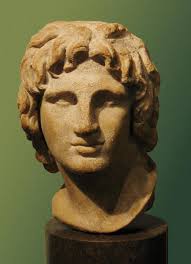Lesson 2 - Historical Perspectives of Abnormal Behaviour
Historical Perspectives

Alexander the Great and Avicenna
Treatment of the mentally ill improved during the time of Alexander the Great (about 332 B.C.). High-quality sanatoriums were built with pleasant surroundings where people could walk, dance, row along the Nile, or listen to music. Treatment included massage, hydrotherapy, gymnastics, and dieting, although purging and bleeding still occurred. Treatment for the next few hundred years continued to be somewhat humane, but around 200 A.D., shortly before the fall of Rome, treatment declined in much of the world. Fortunately for individuals in Islamic countries, the regression was not as large. The more scientific aspects of Greek medicine survived through medieval times and are evident in the words and work of one Islamic physician, Avicenna (circa A.D. 980-1037). Following is an account of Avicenna’s humane treatment of a young prince suffering from a mental disorder:
 “A certain prince… was afflicted with melancholia, and suffered from the delusion that he was a cow… he would low like a cow, causing annoyance to everyone,…crying ‘Kill me so that a good stew may be made of my flesh,’ finally… he would eat nothing… Avicenna was persuaded to take the case…First of all he sent a message to the patient biding him good cheer because the butcher was coming to slaughter him, whereat…the sick man rejoiced. Some time afterwards Avicenna, holding a knife in his hand, entered the sickroom saying, ‘Where is this cow that I may kill it?’ The patient lowed like a cow to indicate where he was. By Avicenna’s orders he was laid on the ground bound hand and foot. Avicenna then felt him all over and said, ‘He is too lean, and not ready to be killed; he must be fattened’. Then they offered him suitable food of which he now partook eagerly, and gradually he gained strength, got rid of his delusion, and was completely cured.”
“A certain prince… was afflicted with melancholia, and suffered from the delusion that he was a cow… he would low like a cow, causing annoyance to everyone,…crying ‘Kill me so that a good stew may be made of my flesh,’ finally… he would eat nothing… Avicenna was persuaded to take the case…First of all he sent a message to the patient biding him good cheer because the butcher was coming to slaughter him, whereat…the sick man rejoiced. Some time afterwards Avicenna, holding a knife in his hand, entered the sickroom saying, ‘Where is this cow that I may kill it?’ The patient lowed like a cow to indicate where he was. By Avicenna’s orders he was laid on the ground bound hand and foot. Avicenna then felt him all over and said, ‘He is too lean, and not ready to be killed; he must be fattened’. Then they offered him suitable food of which he now partook eagerly, and gradually he gained strength, got rid of his delusion, and was completely cured.”
|
Click below to learn more.... |